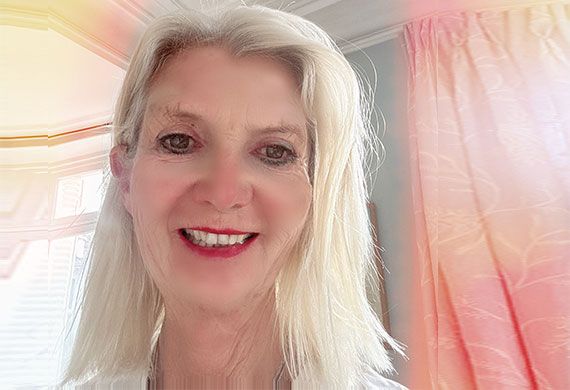Plastic surgeons are vital in both reconstructive and aesthetic medicine, addressing a wide range of patient needs. They play a crucial role in restoring function and appearance for individuals who have experienced trauma, congenital deformities, or undergone significant surgeries, such as mastectomies. Additionally, plastic surgeons offer aesthetic procedures that help patients achieve their desired looks, contributing to increased confidence. Their expertise in microsurgery and advanced techniques is essential for complex cases, including burn care and trauma recovery. Dr Corinne Becker, Surgeon, Dr Corinne Becker of Lymphoedema Center has been an outstanding role model for surgeons around the world with her commendable work and ethics. Her innovative approaches to lymphoedema treatment have significantly advanced the field and inspired countless professionals to prioritize patient-centred care.
In a close interview with us, she shared her life story and offered valuable insights into industry trends as well.
Take us through the formative years of your life. What were some key early influences in life that shaped you as an individual?
I began my career in medicine, focusing on general, hand, and plastic surgery, with early research in microsurgery and biochemical growth factors. A pivotal moment occurred when our rat experiments showed lymph node transplantation could treat lymphedema after node removal. In Paris, I completed a detailed anatomical thesis on donor sites, ensuring donor sites wouldn’t develop lymphedema, which took two years to refine. Years later, a doctor requested help for his wife’s lymphedema, prompting me to apply these methods clinically. Since then, I’ve expanded treatments for post- mastectomy, genetic, and lower-limb lymphedema, with supportive research in Sweden. Currently, I treat around 68 patients weekly, often travelling globally to perform free surgeries for children, supported partly by contributions from adult patients. I’m actively seeking partnerships to fund this work, particularly for underserved children, whose early treatment can be transformative. My chief, Professor Alain Gilbert, a specialist in hand surgery, along with Professors Tobiana and To, has been a crucial mentor and friend, consistently encouraging my journey in advancing care for lymphedema patients.
Share an overview of your extensive career as a plastic surgeon. What are the primary procedures and techniques you specialize in?
When choosing my surgical path, I began with general surgery before transitioning to specialized training in hand and plastic surgery, thanks to the recognition and encouragement of my mentors. I had the privilege of training in Germany and primarily in Paris, learning various techniques, including plexus surgery, with the best practitioners in the field. Throughout my career, I have engaged in extensive research, believing it is essential to maintain a broad perspective in medicine. This means focusing on one's speciality and understanding the work of researchers and other disciplines, such as radiology and genetics, to enhance our practice. My message is to stay curious, open-minded, and collaborative, embracing diverse cultures and learning from innovative professionals, as this is essential for growth in our field. I am passionate about microsurgery, particularly in reconstructing severe trauma cases, having performed complex leg reconstructions with multiple flaps and extensive breast reconstructions using pedicled and microsurgical flaps. My interest in treating lymphedema aligns with my preference for challenging procedures. Although I initially focused on aesthetic surgeries like abdominoplasty, I now prioritize reconstructive work, which is often underserved. I find fulfilment in helping patients with serious conditions and using my skills to enhance their quality of life.
I believe that no matter how much one may claim to be the best, there is always room for self-improvement
The journey of a business leader is filled with obstacles. Could you discuss the major challenges you face as a plastic surgeon and how you navigate those roadblocks?
Every day presents challenges, especially since each patient is significant, but I find working with babies particularly demanding. I frequently travel to Argentina and Vietnam to perform surgeries on children, often between six months and a year and a half old. The microsurgical techniques required are intricate, as I sometimes need to use a microscope to dissect vessels that are only 0.2 to 0.3 millimetres in size. While these procedures can be technically challenging, the results are rewarding. Many children heal completely, and seeing them return a year later without signs of lymphedema is incredibly fulfilling. Additionally, I encounter severe lymphedema cases that require a multi-step surgical approach, such as dermolipectomy followed by lymph node transfer. These patients often suffer from long-term conditions and may not be in the best health, so we must tailor the surgery to their medical circumstances while offering them hope through gradual treatment. I also travel to Morocco to assist patients who cannot obtain visas to come to France and am working to establish lymphedema centres globally, including in Vietnam, Argentina, and potentially India. My goal is to train local surgeons in these countries to treat their patients effectively, as I believe it’s essential to pass on my knowledge and experience and to set global standards for lymphedema care.
In your view, what are the most significant accomplishments you’ve achieved in your professional journey? What would you consider your guiding principle for success as a leader?
For me, every day is a gift, and while I have received various honours, such as being a member of the Academy and a Legend of Microsurgery, those accolades aren't what matters most. What truly counts is the happiness of my patients, and their satisfaction is my top priority. While I appreciate the recognition, my primary focus is on performing as many surgeries as possible and providing the best care to my patients. That, for me, is my true achievement and fulfilment.
Dr Corinne Becker, Surgeon, Dr Corinne Becker - Lymphoedema Center
Dr Corinne Becker is a Pioneer in lymph nodes transplantation to treat, first lymphoedema occurred after treatment of breast cancer , then iatrogenic lymphoedema of the legs after large hysterectomies, melanoma, pelvic tumors, large prostatectomies. Because growing factors in the nodes, she began to operate congenital lymphoedema with improvement of quite all the cases and cure of some of them, even difficult cases. Her experience now is over 25 years, and she did operate more as 5000 patients over the world.
🍪 Do you like Cookies?
We use cookies to ensure you get the best experience on our website. Read more...
Copyright © All rights reserved. Global Woman Leader



.png)
